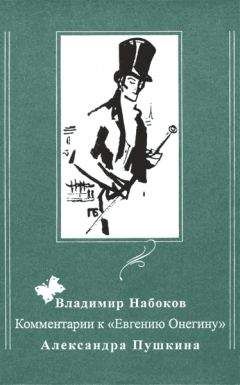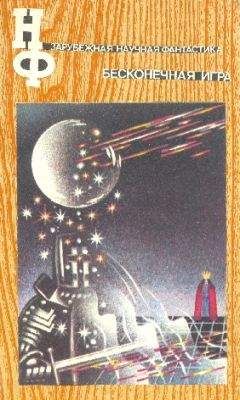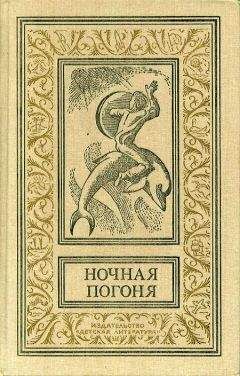XLVII
conquests of others and their own,
hopes, pranks, daydreams.
The innocent talks flow,
4 embellished with slight calumny.
Then, in requital for their patter,
her heart's confession they
sweetly request.
8 But Tanya in a kind of daze
their speeches hears without response,
understands nothing,
and her heart's secret,
12 fond treasure of both tears and bliss,
she mutely guards meantime
and shares with none.
Tatiana wishes to make out
the talks, the general conversation;
but there engages everybody in the drawing room
4 such incoherent, common rot;
all about them is so pale, neutral;
they even slander dully.
In this sterile aridity of speeches,
8 interrogations, talebearing, and news,
not once in four-and-twenty hours does thought
flash forth, even by chance, even at random;
the languid mind won't smile,
12 the heart even in jest won't quiver;
and even some droll foolishness in you
one will not meet with, hollow
monde!
The “archival youths” in a crowd
look priggishly at Tanya
and about her among themselves
4 unfavorably speak.
One melancholy coxcomb finds
she is “ideal”
and, leaning 'gainst a doorpost,
8 prepares an elegy for her.
At a dull aunt's having met Tanya,
once V[yazemski] sat down beside her
and managed to engage her soul;
12 and, near him having noticed her,
an old man, straightening his wig,
inquires about her.
But where stormy Melpomene's
protracted wail resounds,
where she her spangled mantle waves
4 before the frigid crowd;
where dozes quietly Thalia
and hearkens not to friendly plaudits;
where at Terpsichore alone
8 the young spectator marvels
(as it was, too, in former years,
in your time and in mine),
toward her did not turn
12 either jealous lorgnettes of ladies
or spyglasses of modish connoisseurs
from boxes or the rows of stalls.
To the Sobránie, too, they bring her:
the crush there, the excitement, heat,
the music's crash, the tapers' glare,
4 the flicker, whirl of rapid pairs,
the light attires of belles,
the galleries freaked with people,
of marriageable girls the ample hemicycle,
8 at once strike all the senses.
Here finished fops display
their impudence, their waistcoats,
and negligent lorgnettes.
12 Hither hussars on leave
haste to arrive, to thunder by,
flash, captivate, and wing away.
The night has many charming stars,
in Moscow there are many belles;
but brighter in the airy blue
4 than all her skymates is the moon;
but she, whom with my lyre
disturb I dare not,
like the majestic moon,
8 'mid dames and maidens shines alone.
With what celestial pride
the earth she touches!
With what voluptuousness her breast is filled!
12 How languorous her wondrous gaze!...
But 'tis enough, enough; do cease:
to folly you have paid your due.
Noise, laughter, scampering, bows,
galope, mazurka, waltz... Meantime,
between two aunts, beside a column,
4 noted by none,
Tatiana looks and does not see,
detests the agitation of the
monde;
she stifles here... she strains in fancy
8 toward campestral life,
the country, the poor villagers,
to that secluded nook
where flows a limpid brooklet,
12 toward her flowers, toward her novels,
and to the gloom of linden avenues,
thither where
he used to appear to her
Thus does her thought roam far away:
high life and noisy ball are both forgotten,
but meantime does not take his eyes off her
4 a certain imposing general.
The aunts exchanged a wink and both
as one nudged Tanya with their elbows,
and each whispered to her:
8 “Look quickly to your left.”
“My left? Where? What is there?”
“Well, whatsoever there be, look....
In that group, see? In front....
12 There where you see those two in uniform....
Now he has moved off... now he stands in profile.”
“Who? That fat general?”
But here we shall congratulate
my dear Tatiana on a conquest
and turn our course aside,
4 lest I forget of whom I sing....
And by the way, here are two words about it:
“I sing a youthful pal
and many eccentricities of his.
8 Bless my long labor,
O you, Muse of the Epic!
And having handed me a trusty staff,
let me not wander aslant and askew.”
12 Enough! The load come off my shoulders!
To classicism I have paid my respects:
though late, but there's an introduction.
Fare thee well, and if for ever,
Still for ever, fare thee well.
Byron
In those days when in the Lyceum's gardens
I bloomed serenely,
would eagerly read Apuleius,
4 did
not read Cicero;
in those days, in mysterious valleys,
in springtime, to the calls of swans,
near waters shining in the stillness,
8 the Muse began to visit me.
My student cell was all at once
radiant with light: in it the Muse
opened a banquet of young fancies,
12 sang childish gaieties,
and glory of our ancientry,
and the heart's tremulous dreams.
And with a smile the world received her;
the first success provided us with wings;
the aged Derzhavin noticed us — and blessed us
4 as he descended to the grave.
. . . . . . . . . . . . . . . . . . . .
. . . . . . . . . . . . . . . . . . . .
. . . . . . . . . . . . . . . . . . . .
8 . . . . . . . . . . . . . . . . . . . .
. . . . . . . . . . . . . . . . . . . .
. . . . . . . . . . . . . . . . . . . .
. . . . . . . . . . . . . . . . . . . .
12 . . . . . . . . . . . . . . . . . . . .
. . . . . . . . . . . . . . . . . . . .
. . . . . . . . . . . . . . . . . . . .
And I, setting myself for law
only the arbitrary will of passions,
sharing emotions with the crowd,
4 I led my frisky Muse into the hubbub
of feasts and turbulent discussions —
the terror of midnight patrols;
and to them, in mad feasts,
8 she brought her gifts,
and like a little bacchante frisked,
over the bowl sang for the guests;
and the young people of past days
12 would turbulently dangle after her;
and I was proud 'mong friends
of my volatile mistress.
But I dropped out of their alliance —
and fled afar... she followed me.
How often the caressive Muse
4 for me would sweeten the mute way
with the bewitchment of a secret tale!
How often on Caucasia's crags,
Lenorelike, by the moon,
8 with me she'd gallop on a steed!
How often on the shores of Tauris
she in the gloom of night
led me to listen the sound of the sea,
12 Nereid's unceasing murmur,
the deep eternal chorus of the billows,
the praiseful hymn to the sire of the worlds.
And the far capital's glitter and noisy feasts
having forgotten in the wilds
of sad Moldavia,
4 she visited the humble tents
of wandering tribes;
and among them grew savage, and forgot
the language of the gods
8 for scant, strange tongues,
for songs of the steppe dear to her.
Suddenly everything around
changed, and lo! in my garden she appeared
12 as a provincial miss,
with a sad thought in her eyes, with a French
book in her hands.





